5 Foods You Think Are High-Protein But Really Aren’t, Dietitian Says

There’s no doubt that protein is one of the most important parts of a healthy, balanced diet. For most people, the recommended daily intake is based on your weight at .36 grams per pound, according to Harvard Health Publishing. Normally, anyone working out or trying to incorporate more protein into their diet knows which foods they can turn to to accomplish their goals. But if you’re not careful, you could be loading up on foods people mistake as high protein. Ahead, a dietitian shares the sneaky foods that often get mislabeled as high-protein.
RELATED: 7 “Healthy” Foods That Are Full of Saturated Fat, Dietitians Say.
1
Peanut butter
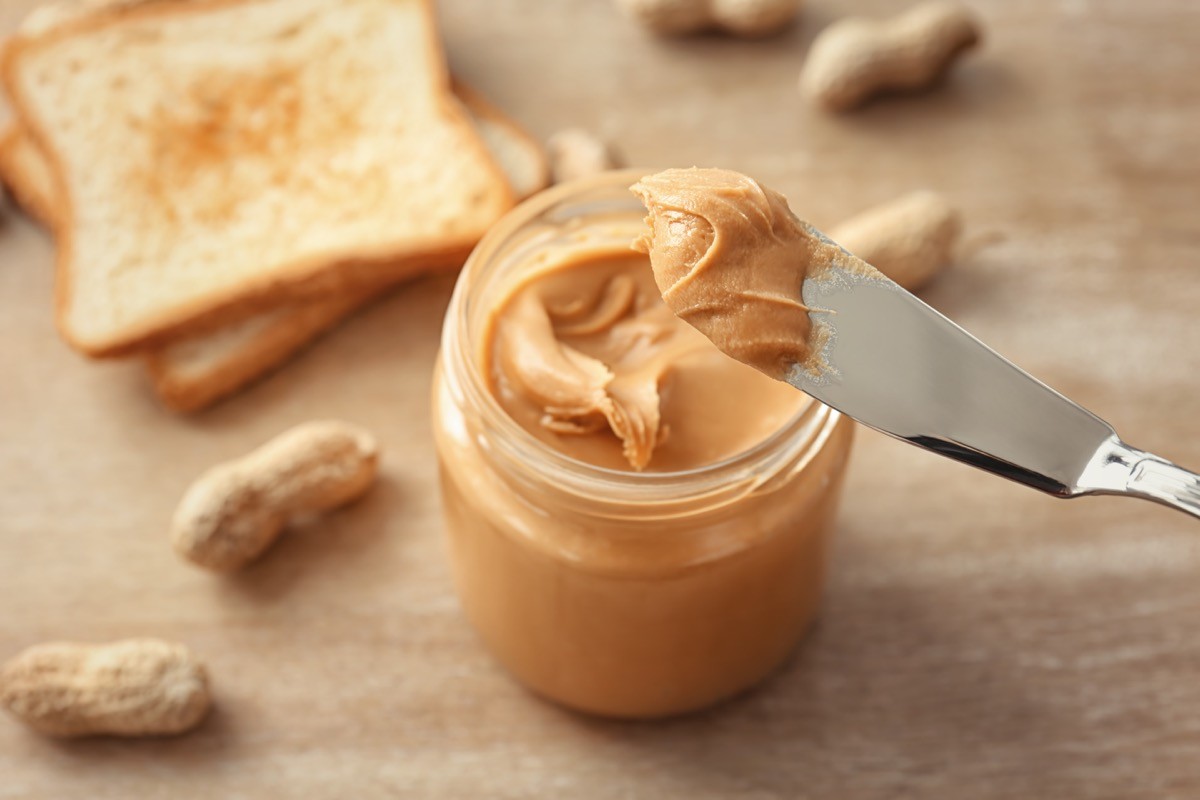
Many people try to optimize their protein intake by focusing on certain foods. But in a recent video, TikTok user @DietitianTayla cautions viewers that a few staples are technically not up to snuff.
“In order to be considered high protein, we’re looking for a minimum 10 grams of protein for every 100 calories, if not more,” she explains.
The first item she singles out is peanut butter. Unfortunately, while the addictive snack can be a tasty addition to smoothies or fruit, it won’t exactly help you get the protein boost you’re looking for.
“For two tablespoons, you get about 200 calories and only six to seven grams of protein,” she says.
2
Eggs
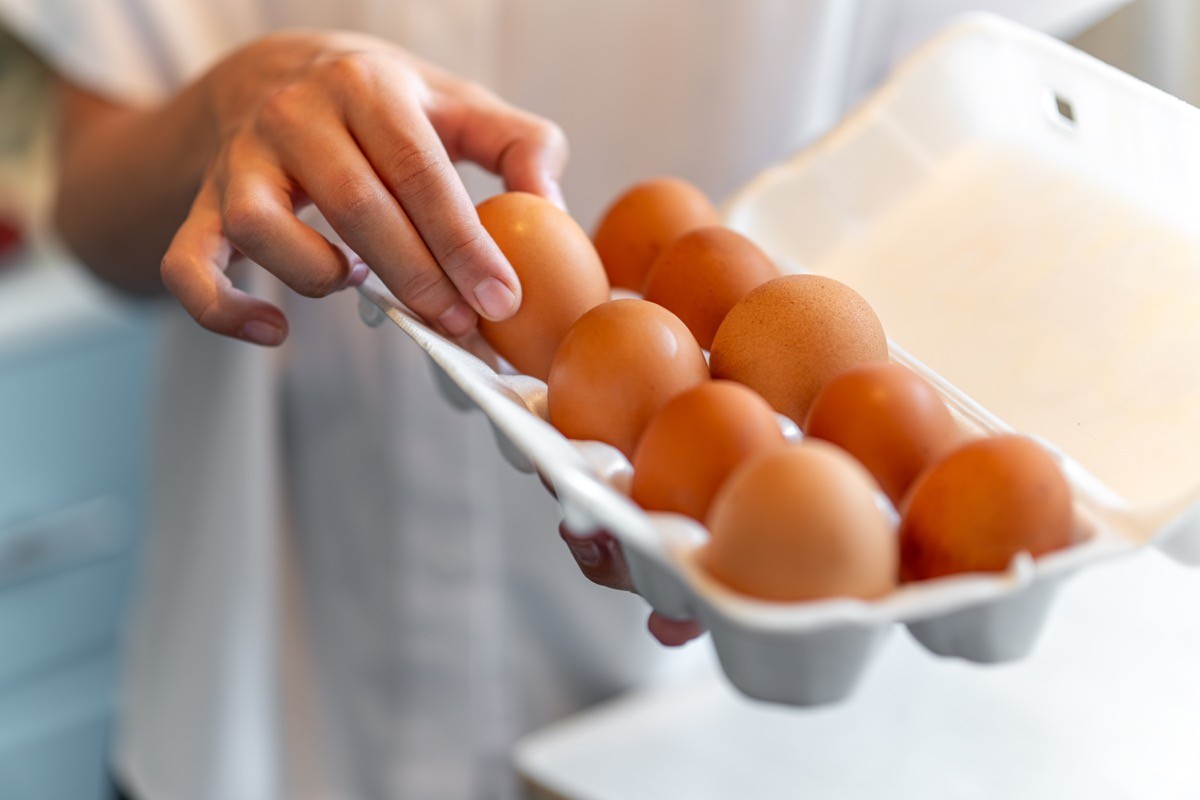
Whether they’re scrambled, fried, poached, or hard-boiled, eggs have long been a go-to for an easy protein source—especially in the mornings. However, @DietitianTayla says this is a surprising misconception.
“Yes, eggs do have protein in them, but they’re not inherently super high in protein,” she says. “One egg with the yolk is about 70 calories and about 6 grams of protein, so it just falls short of that 10 grams for every 100 calories.”
3
Greek yogurt
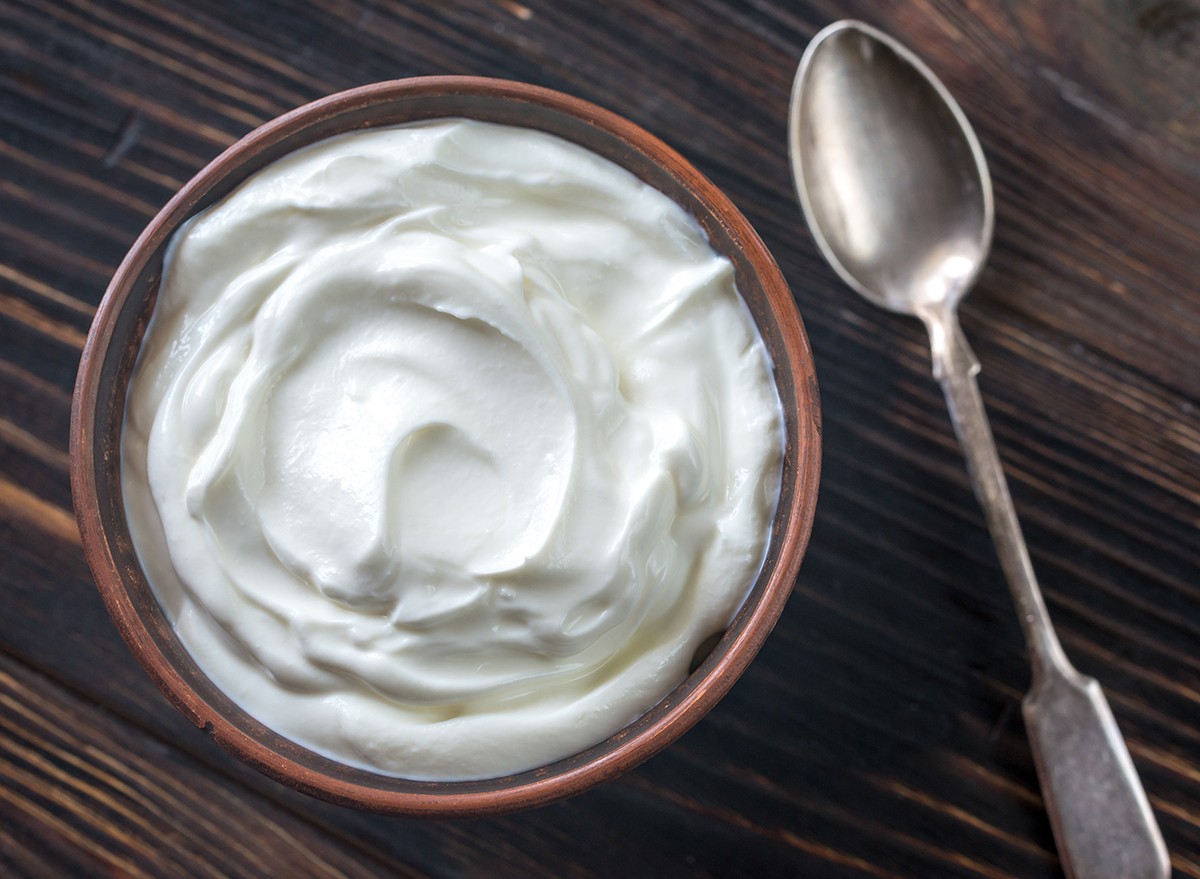
Greek yogurt is great as the base for a nice fruit bowl or a healthier replacement for sour cream as a topping. But just make sure you do a little basic research before you start relying on it as a major source of protein. In her video, @DietitianTayla says some versions fall short in this area, specifically calling out the popular Greek Gods brand.
“For one serving, it’s 140 calories and only four grams of protein,” she notes. “Also has a whopping 15 grams of added sugar, so if you look at that label and compare it to ice cream, they’re very similar.”
RELATED: Tomatoes Are the Healthiest Fruit in the World, CDC Says—Here’s Why.
4
Kodiak Cakes Muffin Power Cup
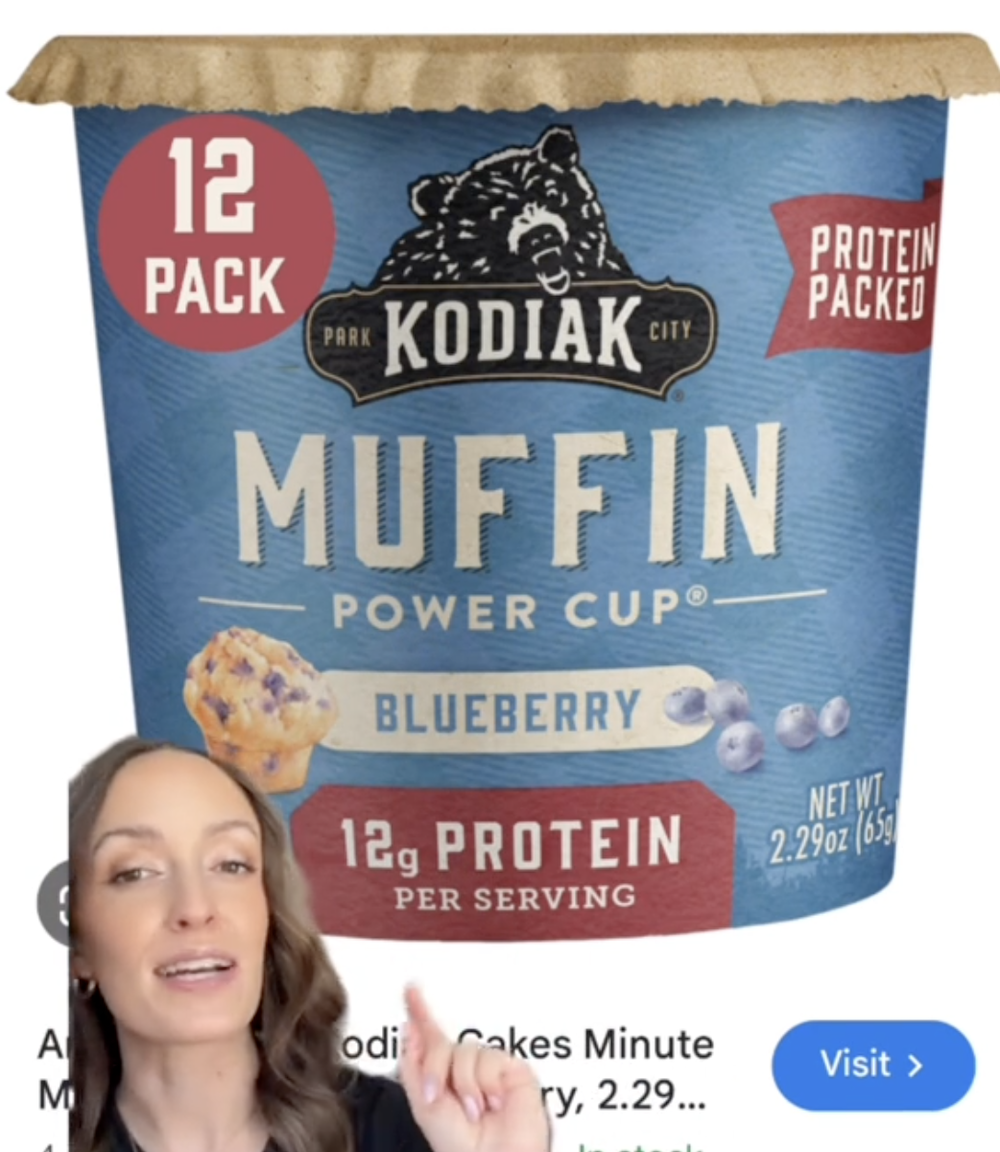
@DietitianTayla warns that even brands that claim to have high protein right on the packaging can be misleading.
“Once again, don’t forget to read your labels because I am calling out these Kodiak power cups because on the surface, they look high protein—it says protein packed up there, has 12 grams right here—but if you look at the calories, these have 260 each,” she cautions about the single serving snack. “So not even close to the 10 grams [for] over 100 calories we want to be hitting, so this is going to be mostly carbs, not at all high protein.”
5
Trail Mix
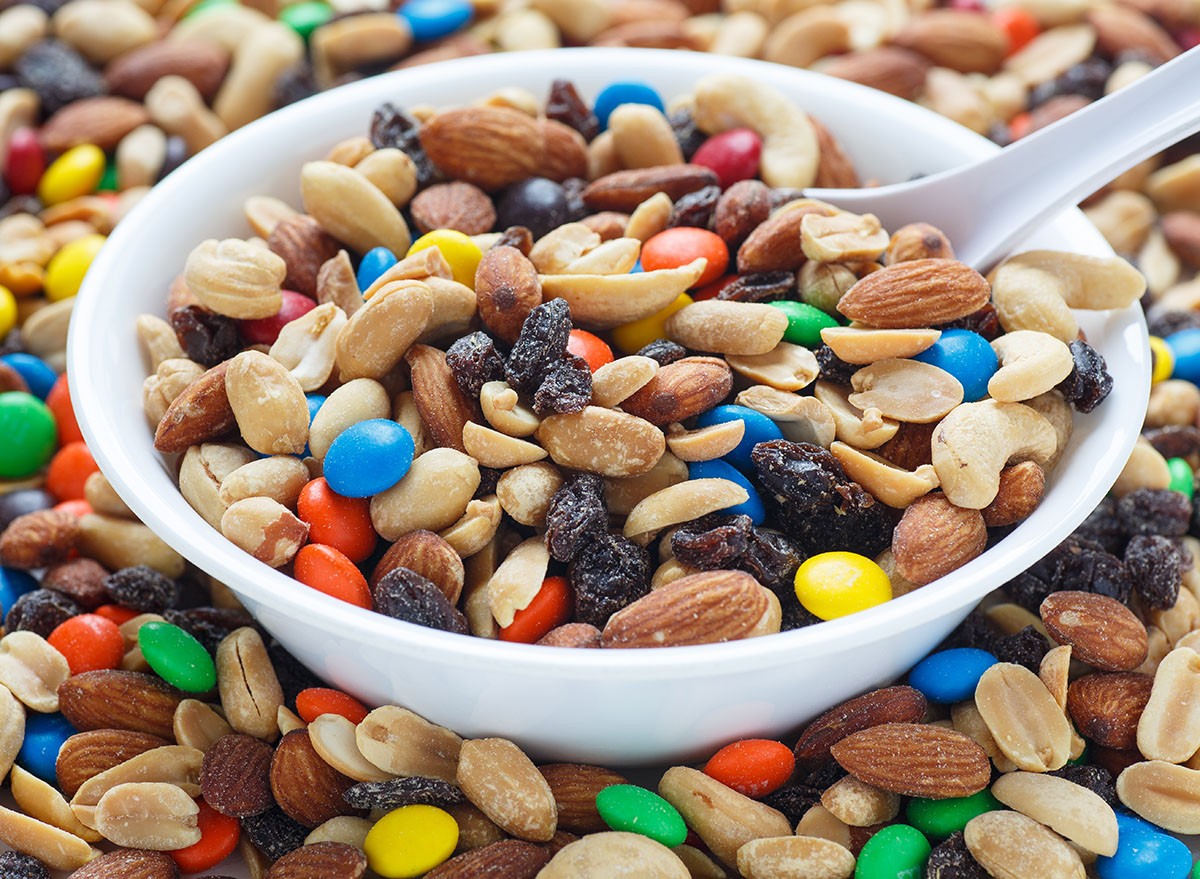
Few snacks are as broadly appealing as trail mix, which has helped make it a health food mainstay—especially for those who need something easy or on the go. Unfortunately, @DietitianTayla dispels the misinformation about the purported benefits of this beloved blend.
“All brands are the same! None of them are high protein—even ones that say they’re high protein are not considered a high protein product,” she says.
She then points out that a quarter cup of Costco’s Kirkland brand trail mix contains 160 calories and just five grams of protein.